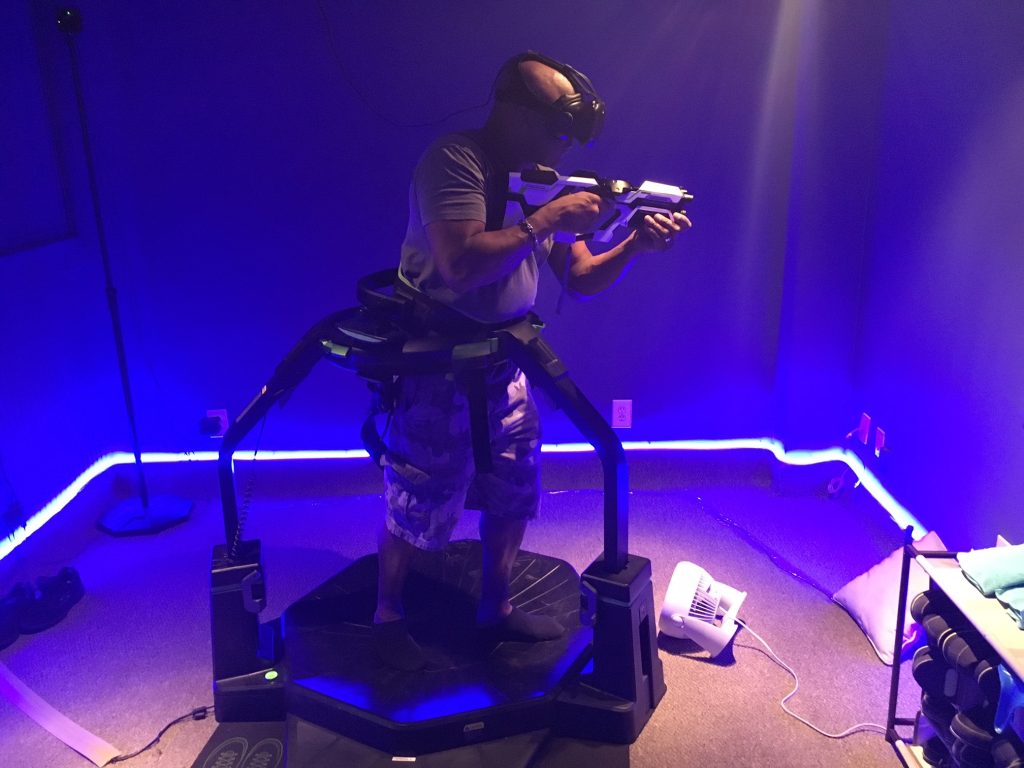In recent years, the gaming industry has witnessed a revolutionary shift with the advent of virtual reality (VR) technology. The impact of virtual reality on immersive gaming experiences is profound, as it allows players to step into fantastical worlds and engage with their environments like never before. By utilizing advanced VR headsets and motion tracking, gamers can experience a heightened sense of presence, making them feel as if they are truly part of the game. This transformation not only enhances gameplay but also redefines the boundaries of storytelling and interaction within the gaming realm.
As we delve deeper into the impact of virtual reality on immersive gaming experiences, we will explore various aspects that contribute to this phenomenon. From the psychological effects of immersion to the technological advancements that make it all possible, this article will provide a comprehensive overview of how VR is reshaping the gaming landscape. Additionally, we will discuss the challenges and limitations that developers face in creating truly immersive experiences, as well as the future potential of VR in gaming.
Whether you are a seasoned gamer or a curious newcomer, understanding the impact of virtual reality on immersive gaming experiences is essential in appreciating the evolution of this medium. Join us as we uncover the intricacies of VR technology and its implications for the future of gaming. Prepare to be captivated by the possibilities that lie ahead, and discover why virtual reality is not just a trend, but a transformative force in the world of interactive entertainment.
Enhancing Player Engagement Through Immersion
Virtual reality (VR) technology has revolutionized the way players engage with games. By creating a fully immersive environment, VR allows players to feel as though they are truly part of the game world. This heightened sense of presence can lead to deeper emotional connections with the game, enhancing overall enjoyment and satisfaction. Players are no longer passive observers; they become active participants, which significantly alters their gaming experience.
Moreover, the immersive nature of VR can lead to longer play sessions, as players become engrossed in the virtual worlds. This increased engagement can also foster a sense of community among players, as they share experiences and strategies in a more interactive manner. As developers continue to innovate, the potential for VR to create even more engaging gaming experiences is vast.
The Role of Realism in Virtual Reality Gaming
One of the most significant impacts of VR on gaming is the level of realism it can achieve. Advanced graphics, spatial audio, and haptic feedback work together to create a lifelike experience that traditional gaming cannot match. This realism not only enhances the visual appeal of games but also contributes to the overall immersion, making players feel as if they are truly inside the game.
As technology continues to advance, the realism in VR gaming is expected to improve even further. This includes more sophisticated physics engines, improved AI behaviors, and more detailed environments. The result is a gaming experience that is not only visually stunning but also emotionally compelling, as players navigate through realistic scenarios and challenges.
Social Interaction in Virtual Reality Gaming
Virtual reality has transformed social interaction within gaming. Multiplayer VR games allow players to interact with each other in a shared virtual space, creating a sense of camaraderie and teamwork that is often lacking in traditional gaming formats. This social aspect can enhance the gaming experience, as players collaborate to achieve common goals or compete against each other in a more immersive setting.
Additionally, VR platforms often incorporate social features, such as voice chat and customizable avatars, which further enhance player interaction. These elements help to build a sense of community, making VR gaming not just about individual experiences but also about shared adventures and friendships. As social VR continues to evolve, it is likely to play an increasingly important role in the gaming landscape.
The Psychological Effects of Immersive Gaming
The psychological impact of immersive gaming experiences in VR is a topic of growing interest among researchers. The ability to fully immerse oneself in a virtual world can lead to various psychological effects, both positive and negative. On one hand, VR can be used for therapeutic purposes, helping individuals confront fears or practice social skills in a safe environment. On the other hand, excessive immersion can lead to issues such as addiction or escapism.
Understanding these psychological effects is crucial for developers and players alike. By recognizing the potential risks and benefits of VR gaming, stakeholders can create healthier gaming environments and promote responsible usage. As the technology continues to advance, ongoing research will be essential in addressing these complex psychological dynamics.
Future Trends in Virtual Reality Gaming
The future of virtual reality gaming is bright, with numerous trends on the horizon that promise to enhance the immersive experience. One significant trend is the integration of artificial intelligence (AI) to create more dynamic and responsive game environments. AI can adapt to player behaviors, making each gaming session unique and tailored to individual preferences.
Additionally, advancements in hardware, such as lighter headsets and improved motion tracking, will make VR more accessible to a broader audience. As these technologies evolve, we can expect to see an increase in the variety of VR games available, catering to different interests and play styles. The combination of AI, improved hardware, and innovative game design will undoubtedly shape the future of immersive gaming experiences.
| Aspect | Description |
|---|---|
| Definition of Virtual Reality (VR) | Virtual Reality is a simulated experience that can be similar to or completely different from the real world, often achieved through the use of VR headsets and motion tracking technology. |
| Enhanced Immersion | VR provides a heightened sense of presence, allowing players to feel as if they are truly inside the game world, which enhances emotional engagement and overall enjoyment. |
| Interactivity | Players can interact with the game environment in a more natural and intuitive way, using hand gestures and body movements, which increases the realism of the gaming experience. |
| Social Interaction | VR enables players to connect with others in a shared virtual space, fostering social interactions and collaborative gameplay, which can lead to stronger community bonds. |
| Challenges and Limitations | Despite its advantages, VR gaming faces challenges such as high costs, motion sickness for some users, and the need for physical space to move around, which can limit accessibility. |
| Future Trends | The future of VR in gaming looks promising with advancements in technology, including improved graphics, haptic feedback, and more affordable hardware, which are likely to enhance user experiences further. |



